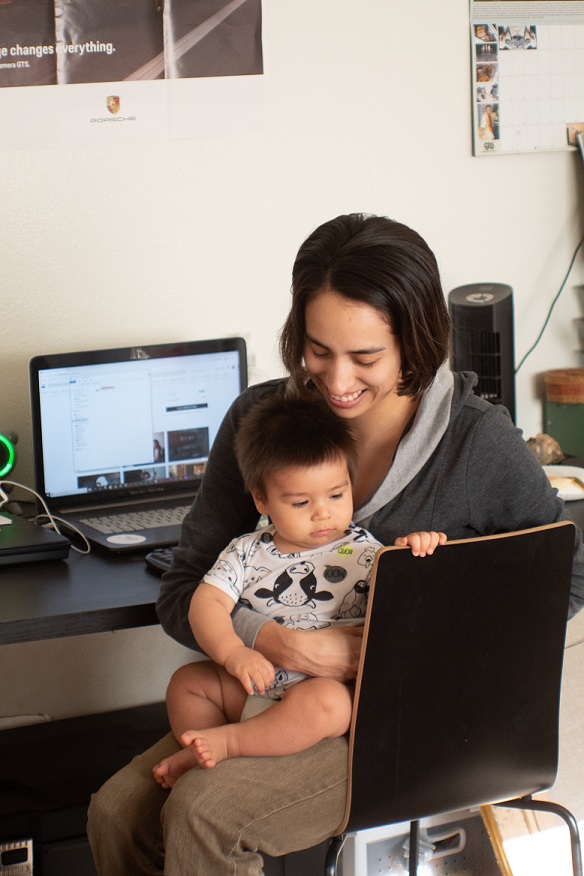How to Improve Work-Life Balance During the Pandemic

These are extraordinary times. The pandemic has suddenly and significantly changed the way we live, work and study. Corporate offices, classrooms and even our homes are not the same anymore.
The challenge is to adapt to this altered environment. We have to learn new ways to cope and achieve work-life balance.
Students and workers are compelled to study and work from home. Home is the new head office or school, while we balance between limited socializing, parenting, running errands and managing our kitchens.
While there are benefits to working from home, the transition has been challenging, and finding balance in our lives can be complicated. The unprecedented environment may have you feeling burnt out, overworked and overly stressed.
Here are some ways you can manage your life with more work-life balance:
Have Realistic Expectations
Initially, many of us interpreted remote work or study as an opportunity to have more free time, learn or upgrade our skills and maximize productivity. Prolonged isolation has led to higher levels of stress.
In such a scenario, you need to manage your expectations. Give yourself more understanding and forgiveness. Don’t be tough on yourself if you do not meet your targets.
Cultivate more patience with yourself. Tell yourself it’s okay if your achievements fall short of your expectations.
Create your Workspace at Home
Your office has a dedicated workspace – your desk or cubicle. You have all the necessary tools and equipment at hand needed to fulfil your tasks. The sudden shift to work-at-home may leave you hanging without a workspace.
Create a dedicated workspace – a desk with all the paraphernalia you may need, such as a lamp, shelf and comfortable chair. You may have to be a bit creative in doing this – salvaging an old desk or clearing a rarely used area in the house. This will help you mark a designated space. And let others know it is your “office” so that you create healthy boundaries.
Take Breaks Regularly
At the office, you are likely to take breaks for a coffee, chat with colleagues or break for lunch. However, at home, you tend to work at a stretch to “prove your worth”. A recent study in the US indicated the average working day has increased by three hours since mid-March.
Ensure you take regular breaks at home. Eat meals with family, go for a stroll or surf the TV for a while. Continued work on the computer screen will lead to exhaustion and an inability to focus. Detaching yourself from work for 10 to 15 minutes will refresh your mind and help you keep a balanced perspective.
Establish a Home Routine
When you physically go to work, you are following a routine. From waking up at a regular time daily, eating breakfast, dressing and commuting to an office, leaving your workplace and going back home after bidding farewell to your fellow-workers, you tend to have a set routine.
For people working at home, the boundaries between work and home get blurred. Routines overlap.
While working from home, set yourself a time when you start your work and stop working. Replace your commute to and from the office with a short walk before and after work.

And when it’s time to stop working, switch off your computer and head to your home gym, kitchen or play with your kids. Create a schedule at home.
Learn to Say No
Too much work can get us bogged down. If you feel you’re already loaded with enough tasks, learn to say no to the additional workload.

Explain to your boss about your work overload. Don’t offer to help out colleagues in case your work is getting a bit much to manage. It’s better to decline than suffer the consequences of burnout.
Communicate your Concerns
When you are facing a rough time, the best way is to communicate your emotions openly and honestly. Sharing your concerns and needs is essential, especially in times of isolation and social distancing. If you are occupied with an important project, tell your family about it. And if you are facing challenges in working on a task, tell your boss.
If you are hesitant about communicating about your difficulties with your boss, talk to a therapist. A therapist is non-judgmental, has no hidden agenda and can be a great support in the increasingly difficult times. Most therapists are available online – connect with a therapist you think you’ll be comfortable with. Your struggle in creating a work-life balance will become easier and may pre-empt a crisis later.
To book an online appointment with a doctor, psychologist or counsellor, click: https://bit.ly/3nNwa11
– Rahul Luther